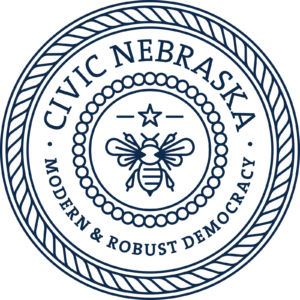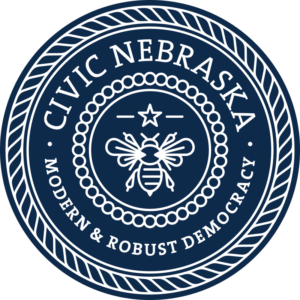This past February I had a chance to take a group of Nebraska leaders to Panama. While we were there we had the opportunity to visit one of the indigenous groups that reside in its rainforests. We had the chance to visit because at some point the government named the region where they lived a federal reserve and they were no longer allowed to farm and use the local resources the way they had for centuries. They learned how to assimilate into modern society enough to save their culture and way of life.
 Now they invite tourists and tell their stories and share their traditions. They send their children to school who return as doctors and teachers. They speak their native language. Some speak three languages or more. They hold on to what makes them who they are as a society by what they learned as they were forced to enter into the changing world around them to preserve it.
Now they invite tourists and tell their stories and share their traditions. They send their children to school who return as doctors and teachers. They speak their native language. Some speak three languages or more. They hold on to what makes them who they are as a society by what they learned as they were forced to enter into the changing world around them to preserve it.
They could have resorted to anger and hate. They could have propagandized on fear to fight for what they held to be their truths. But they didn’t.
In this tribe, we found a microcosm of our own situations. A small group of a few hundred people with a shared history and hopes for the future. Some liked how things are, some working for change. All taking care of each other.
In the tribe, they elect their leader for a five-year term by standing in line in front of their favored candidate. Whoever has the longest line wins. If you break the rules, you are bound to an open-air hut until you return to daily life. The kids run around and tease each other and everyone contributes.
In this small place tucked into a beautiful natural environment that itself almost seems spiritual, unhealthy conflict and division could easily rot and destroy this vibrant life they work so hard to preserve. It takes communication, patience, compromise, and looking back to move forward.
Since that trip eight months ago, I have often wondered what our lives would be like if we, as an American people, insisted on this sort of civility. If we stopped feeding into the rhetoric of division, where you can only be right or wrong, on one side or the other.
What if, like this tribe, we looked back on our history to celebrate and to learn and grow. If we didn’t turn differences in ideals into grounds for hate and slander. If our candidates didn’t win by fanning fear and division.
We have a living document created to do so. We have a system that, if we used it for its purpose, can lead us in the right direction. We can take steps to create a shared hope in better.
It won’t be easy. These tumultuous election cycles are not new. In a letter to his wife, Andrew Johnson described his role in “these wicked games.” But we can start to move the dial and we can start with our own communities.
We can ban together to show that we can listen and learn from each other. That we can digest various points of view and discover where thoughtful compromise is possible. We can encourage candidates who don’t have ulterior motives for running. We can remind our children that there is only room for hate and fear when we allow for it. When we feed off it and serve it to others without any real education on topics.
And we can also choose change. To decide that we won’t promote our own objectives by villainizing others. By understanding the difference between frustration and anger. That one shows a commitment and can move us forward and the other holds tight and pulls us apart.
And we can start by standing in line, much like the tribe in Panama where they decided that the rich culture and traditions of their community are worth preserving while they evolved to be successful in a modern world, and casting our own votes.
![]()
Melissa Garcia is a community affairs manager at Black Hills Energy and a native of Broken Bow. She is a contributor to TEDxLincoln, the University of Nebraska System President’s Advisory Council, and the Rural Futures Institute Community Innovations project.


